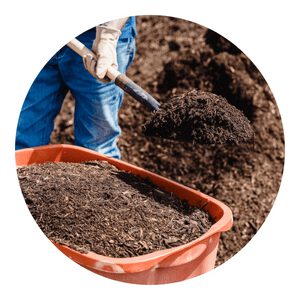How to grow Muncher Cucumber
Muncher cucumbers are a delightfully crunchy and sweet variety of cucumber that are perfect for snacking and adding to salads.
Whether you’re a seasoned gardener or just getting started, growing your own Muncher cucumbers can be an easy and rewarding experience.
With the right tips, tricks, and supplies, you’ll be harvesting your own munchers in no time!
Growing Muncher Cucumbers
Do you want to learn how to grow your own Muncher cucumber?
If so, you’ve come to the right place! Muncher cucumbers are easy to grow and ideal for beginner gardeners.
They produce delicious fruits that can be used in salads or as a low-calorie snack.
With just a few simple steps, you can have your own crop of fresh Muncher cucumbers in no time at all.
In this article, we’ll provide everything you need to know about growing these tasty cucumbers: from planting and watering tips to harvesting advice.
You’ll also learn about companion plants and other important information for getting the most out of your crops.
We’ll even discuss some common problems and how to avoid them so your garden will thrive for years to come!
After reading our guide, you’ll be ready to start enjoying delicious homegrown Munchers every summer season.
Muncher Menu
Planting: Location & Soil
When it comes to growing muncher cucumber, finding the right location and soil is key to a successful harvest.
Planting your cucumbers in an area with direct sunlight and good drainage will ensure that they receive the necessary amount of sunlight for optimal growth.
The ideal soil for growing muncher cucumbers is loose and fertile, with a neutral pH balance between 6-7.
To help improve the quality of your soil, you can add organic matter like compost or manure prior to planting.
Make sure to till or rake the soil before planting to ensure even distribution of nutrients throughout the bed.
It’s also important to consider other plants when selecting a location for your muncher cucumbers; make sure that they are not planted too close together as this can inhibit their growth potential due to competition for resources such as light and water.
Sunlight: Requirements & Benefits
An essential factor for any vegetable garden is the amount of sunlight it gets.
Muncher cucumbers need at least 6 hours of direct sunlight per day to grow optimally. If your plot of land does not get enough natural light, you may need to consider supplementing with a grow light.
When it comes to placement, try and provide the cucumber vines with as much space as possible so they can spread out and maximize their exposure to the sun.
In addition to providing nourishment for growth, sunlight also has a few other benefits when it comes to Muncher cucumber cultivation.
Make sure the area you’ve chosen receives plenty of sun throughout the day since this will help keep fungus and mildew away from your plants.
Additionally, adequate amounts of sunshine will ensure that your cucumbers are ripe and ready for harvest in time.
Water: Amount & Frequency
Water is a crucial factor in growing Muncher cucumbers.
The amount and frequency of watering depends on your local climate and the season.
Understanding how much water to provide and how often will help you achieve a successful crop of delicious cucumbers.
In general, it’s best to provide your cucumbers with 1-2 inches of water per week during the hot summer months, either through rainfall or irrigation.
If you’re using an irrigation system, make sure to spread the water out over several days rather than giving them one large dose at once so that it has time to soak into the soil.
During cooler parts of the year, such as spring or fall, reduce watering to about half an inch per week; this should be enough for the plants without encouraging too much growth which could lead to reduced yields come harvest time.
A plump green Grow muncher cucumber, So crunchy and fresh off the vine, Makes an amazing summer side dish, With a delightful flavor so sublime. It pairs well with slices of tomato, Making a meal that's sure to shine, And when added to salads galore, Your culinary masterpiece will define. Grow muncher cucumbers are best eaten raw, For maximum crispness your heart will adore. So feel free to indulge in this veggie treat, It'll make your mouth water for more!
Chappy The Gardener
Organic Fertilizing: Type & Timing
Organic fertilizing is a great way to get the most out of your garden by providing essential nutrients to your plants.
If you’re growing Muncher cucumbers, knowing what type of organic fertilizer to use, as well as when and how often to apply it can make all the difference.
Organic fertilizers are derived from natural sources such as composted animal manure or plant materials, and come in many forms.
The best type for Muncher cucumbers is an all-purpose organic fertilizer containing nitrogen, phosphorous and potassium that will help promote healthy foliage growth and full fruit development.
For young cucumber plants, use a low-nitrogen formula; once they’ve grown larger or start producing fruits switch to a higher-nitrogen blend.
Apply the fertilizer every four weeks throughout the growing season according to package instructions for proper dosage amounts.
Pest Control: Identifying & Treating
Pest control is an important part of growing a healthy and successful crop of Muncher cucumbers.
Proper identification and treatment of pests can mean the difference between a thriving garden and one that fails to produce.
As Muncher cucumbers are a popular garden plant, it is essential to know how to identify any potential pest problems in order to take the necessary steps for prevention or eradication.
Many common pests can affect Muncher cucumber plants, including aphids, whiteflies, leafhoppers, mealybugs, spider mites and slugs.
A thorough inspection of your plants should be done on a regular basis in order to detect signs of infestation early on before they cause significant damage.
Identifying these pests can be tricky as some may have similar characteristics or camouflage themselves among foliage making them difficult to spot at first glance.
Harvests: Signs & Timing
Growing Muncher cucumbers is a fun and rewarding process, but it’s important to know when to harvest them.
Knowing the signs of a ripe cucumber and timing your harvests correctly are key steps in cultivating successful crops.
Understanding different harvesting stages helps gardeners gain an appreciation for the plants as they mature and develop.
When growing Muncher cucumbers, look for fruits that are slightly curved and firm to the touch.
This indicates that the cucumber has reached its full size but hasn’t yet begun to soften or yellow.
To test ripeness further, lightly press your fingernail against the surface of the fruit – if it yields easily, then it’s ready to be harvested! If not, give the plant more time before checking again.
How long does it take Muncher cucumbers to grow?
Growing Muncher cucumbers is a fun and easy project that can be enjoyed by gardeners of all levels.
If you’re looking to add this unique variety to your next gardening project, you may be wondering how long it takes for them to grow.
Generally speaking, it takes about 45-60 days after planting from seed before the first cucumber is ready for harvest.
Muncher cucumbers are best started indoors in peat pots about 6-8 weeks before the last frost date for your area.
Once planted outdoors, they should begin flowering in just a few weeks with fruits beginning to form shortly afterward.
The fruits will mature approximately 10-14 days after the flowers have formed on the vine and can be harvested when they reach full size (approximately 4-7 inches).
How tall do Muncher cucumber plants grow?
Muncher cucumber plants typically grow to a height of 3 to 4 feet tall and require some form of trellis or support structure to keep them from sprawling on the ground.
The vines of a mature Muncher plant can reach up to 8 feet in length, so you should be sure to provide plenty of room for their growth when planting them in your garden.
When grown vertically on a trellis, their long vines will also help keep weeds away from their roots and improve air circulation, helping them thrive even more!
How To Grow Muncher Cucumber Hydroponically
Growing Muncher Cucumbers hydroponically is a great way to get the highest quality cucumbers in your garden.
Hydroponic systems allow you to easily control and monitor the nutrition, water, and temperature levels for your plants, creating an ideal environment for healthy cucumber growth. Here’s how to do it.
To begin growing Muncher Cucumbers hydroponically, you’ll need a nutrient-rich soil mix and access to plenty of light. Make sure you use the right type of grow lights that mimic natural sunlight or give off full-spectrum light. You can also choose between different types of hydroponic systems such as deep water culture, aeroponics, and wick systems.
How To Grow Muncher Cucumber Aquapoonics
Growing Muncher cucumber in an aquaponics system is a great choice for anyone looking to add a unique and delicious vegetable to their garden.
This hybrid variety of cucumber has been specially developed for growing in water-based systems, so it’s perfect for those who want to get the most out of their aquaponics setup.
Plus, it’s incredibly easy to grow and maintain!
To begin, you’ll need an established aquaponics system with adequate lighting and temperature control.
This will ensure your plants receive all the nutrients they need while helping them thrive in the environment you provide.
How To Grow Muncher Cucumber In A Pot
Growing Muncher cucumbers in a pot is easy and will provide you with delicious, crunchy cucumbers all summer long.
This variety of cucumber is an ideal choice for growing in containers due to its small size and short growing season.
With the right environment, soil, and care you can successfully grow Muncher cucumbers in a pot and enjoy their mild sweet flavor.
Before planting your Muncher cucumber seeds, make sure your container has adequate drainage holes at the bottom as this is essential for successful growth.
You should also choose a good quality potting mix that drains well but still retains moisture when watered.
Place the pot in an area that gets full sun for at least eight hours each day to ensure optimal growth.
When planting your seeds be sure to spread them out evenly throughout the pot and cover lightly with soil or compost.
How To Grow Muncher Cucumber In A Raided Beds
Muncher cucumbers are a type of cucumber that is known for its crisp texture and sweet taste.
These cucumbers grow best in raised beds, since the soil will be more aerated and drains better than with flat ground beds.
Growing muncher cucumber in raised beds can also help reduce the risk of diseases, as the elevation prevents moisture from becoming trapped around the plants’ roots.
To get started on growing your muncher cucumber, first choose a location that gets at least six hours of sunshine per day.
Make sure to prepare your soil with compost or manure before planting seeds or seedlings.
You should also space out each plant about 18 inches apart to ensure they have enough room to spread their vines without competing for sunlight and nutrients from the soil.
In conclusion,Grow muncher Cucumber is a great way to ensure that your cucumbers are healthy and well-nourished.
It’s easy to use, contains all the necessary nutrients for cucumber growth, and is also cost-effective.
With Grow muncher Cucumber, you can rest assured that your cucumbers will reach their full potential.
Furthermore, using this product will save you time and energy in taking care of your cucumbers.
Finally, why not give it a try?
Click To Grow

Solar Light

Plant Pots

Bird House
Helps Us Grow – Share If You Like












